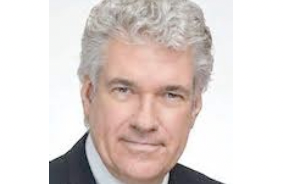Author Peter Homberg

Contact Peter
https://www.dentons.com/en/peter-homberg
Update on the Current Developments in the German Legalization Process
In August 2023, the Federal Cabinet passed the “Act on the Controlled Use of Cannabis and on the Amendment of Further Regulations” (“Gesetz zum kontrollierten Umgang mit Cannabis und zur Änderung weiterer Vorschriften” – “Cannabisgesetz”, “CanG”), which is based on the 2-pillar Key Points Paper by Federal Health Minister Karl Lauterbach and Federal Agriculture Minister Cem Özdemir from mid-April 2023. The draft law is now intended to implement the first pillar, private and communal, non-commercial home cultivation for adults for personal consumption. When the CanG can be implemented depends on whether the Federal Council (Bundesrat) approves or objects to the draft bill. The first reading in the German parliament (Bundestag) has already taken place. The second and third readings were originally planned for week 50, 2023. However, SPD MP (SPD-Bundestagsabgeordneter) Dirk Heideblut announced recently that the final reading of the CanG would not take place in the last sitting week of the year. It is unclear whether the delay by the SPD parliamentary group was due to content-related reasons or the budget dispute. Implementation of the law is still planned for April 2024 – unless the Bundesrat calls in the Mediation Committee. The current plan remains unchanged: the decriminalization of personal possession and personal cultivation is to be implemented on 01 April 2024, and the facilitation of cultivation in associations from 01 July 2024.
Changes to the content of the draft bill
Many regulations have been relaxed in the meantime compared to the cabinet draft. For example, instead of 25 grams, the new draft allows 50 grams of cannabis possession from home cultivation. The restricted consumption zones around daycare centers, schools, etc. are limited to “visual range” instead of the original 200 meters. The range of fines has been significantly reduced; in addition, possession of cannabis in excess of the permitted quantities is not automatically a criminal offense, but up to a certain amount is initially an administrative offense. On the other hand, penal norms that serve to protect minors have been increased. What is new is that only those who have previously resided in Germany for at least six months can become members of a cultivation association.
According to the current draft, home cultivation, cultivation in associations and the possession of cannabis flowers will be legalized. Commercial trade will still not be possible and will be sanctioned with penalties.
Currently, a zero-tolerance rule applies to THC in road traffic. This means that a driver who is perfectly fit to drive can be prosecuted for having consumed cannabis several days ago if a residue is found. In order to do justice to the planned decriminalization of cannabis in road traffic law, the traffic light coalition has agreed on an amendment to the Driving Licence Ordinance (Fahrerlaubnisverordnung). The Federal Ministry of Transport (Bundesverkehrsministerium) is to propose a new guideline value by April 2024.
Criticism
However, the draft law is currently also facing criticism. In a letter to the parliamentary groups in the Bundestag, initiated by the German Medical Association (Bundesärztekammer), the planned cannabis law is described as a danger and members of the Bundestag are urged not to approve it. The signatories include the Police Union (Gewerkschaft der Polizei), the Association of German Criminal Investigators (Bund Deutscher Kriminalbeamter,), the German Teachers’ Association (Deutscher Lehrerverband), the Professional Association for Teachers and Educators (Berufsverband für Lehrkräfte und Pädagogen), the German Society for Pediatric and Adolescent Medicine (Deutsche Gesellschaft für Kinder- und Jugendmedizin), the Professional Association of Pediatricians and Adolescent Doctors (Berufsverband der Kinder- und Jugendärzte) and various other professional associations from the medical field. The main criticism is that cannabis legalization contradicts international evidence and endangers the health of the younger generation. It is also doubted that the new law will lead to a containment of the black market and help to relieve the black market. Instead, it will lead to additional work for regulatory authorities, police, law enforcement and courts. This is due in particular to the law’s fragmented nature, which would lead to a high level of control by the authorities, numerous new disputes and many court proceedings. Instead of the currently planned regulation, a strengthening of cannabis-related education and prevention would be preferable.
It remains to be seen whether this vehement criticism will change anything in the final version of the law early next year.

















